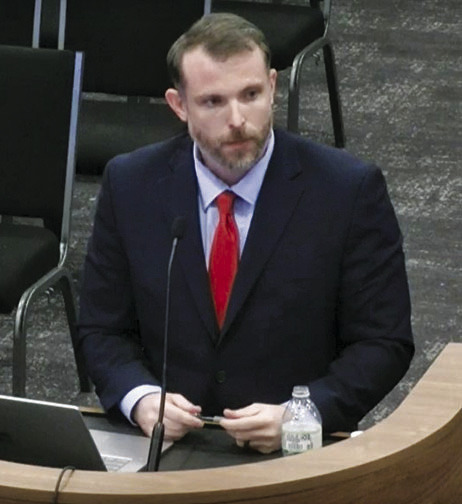HUTTO — Officials are developing an action plan after 36% of city staffers reported feeling “really engaged” in their jobs, but a smaller number — 11% — gave the opposite response, according to a recent, first-time Gallup survey.
Otherwise, more than half of municipal employees feel neither engaged nor disengaged, according to the survey reported by the city.
“That means these are your normal individuals who are doing their job on a regular basis and doing it well, but may not necessarily be going the extra mile on a daily basis. So, that’s really the group we’ve focused on in our action planning,” David Amsler, director of strategic operations, told City Council at a Dec. 5 meeting.
Amsler contracted with Gallup to perform an employee feedback survey.

About 77% of employees answered the anonymous online 12-question poll. The survey, conducted June 20 to July 5, was intended to assess engagement levels and arrive at insights to drive organizational improvement, the director said.
Overall, the city’s mean engagement score was 3.84 on a scale of one to five. That puts Hutto in the 48th percentile, about in the middle compared to other organizations.
After receiving the scores, Amsler gathered a team of the city’s top leaders and developed an action plan to address the issues. Because the scores can be broken down by department, the team was able to have solution- oriented discussions with every single division in the organization.
“They went to our Building Inspection Department. They went to our Parks Maintenance Department. And they sat down and had a discussion with them to identify what issues or obstacles are currently blocking team success and pinpoint the specific questions,” Amsler said Each department was then tasked to pinpoint one verifiable action item to improve for the following year.
“We believe this approach empowers managers of teams to take ownership of the engagement and fosters localized solutions, because what works for our accountants when it comes to engagement may be an entirely different thing than when it comes to our public works guys,” he said.
Amsler said engagement is a proven driver of high performance.
“When employees feel valued and supported, they bring a higher level of performance to the organization. Gallup’s research highlights that engaged employees are the backbone of organizational success,” he said.
Since this was the first time the survey was performed, the scores do not reflect whether engagement has been growing or declining.
“This survey currently is just one snap in time because we have not taken a previous survey and cannot compare data year over year. However, as we continue to take actions that are directly related to our scores and continue to take surveys, we can track progress and get a better picture of overall engagement,” Amsler said.
Among the issues satisfying employees the least included receiving recognition or praise for doing good work and having the equipment or materials to do their jobs properly.
While many felt they didn’t get enough acknowledgment, the opposite was true when it came to encouragement. One of the highest scores came from responses regarding having someone at the office who cheers the employee’s development.
Councilman Dan Thornton asked whether the poll accounted for generational differences in work attitudes.
“For younger generations, it’s a lot more of ‘work is something that I do for 40 hours a week, and it’s not my life,’ where for a lot of other people, they define themselves by what their job is.
So, it seems like as you start to get a younger workforce your engagement scores are going to suffer to a certain extent because of that difference in mindset versus a problem in your organization,” he said.
Amsler acknowledged a difference in how generations see employment but said many of the younger workers in the city scored higher in engagement because of city initiatives such as flexibility for remote workdays and an employee appreciation program.
Amsler also addressed the difference in how some city departments foster a deeper sense of belonging, such as the Police Department where officers trust each other with their lives. He said some of the topics were weighted differently to account for those types of differences.
The next survey is scheduled for May.
“ “When employees feel valued and supported, they bring a higher level of performance to the organization.”
- David Amsler



